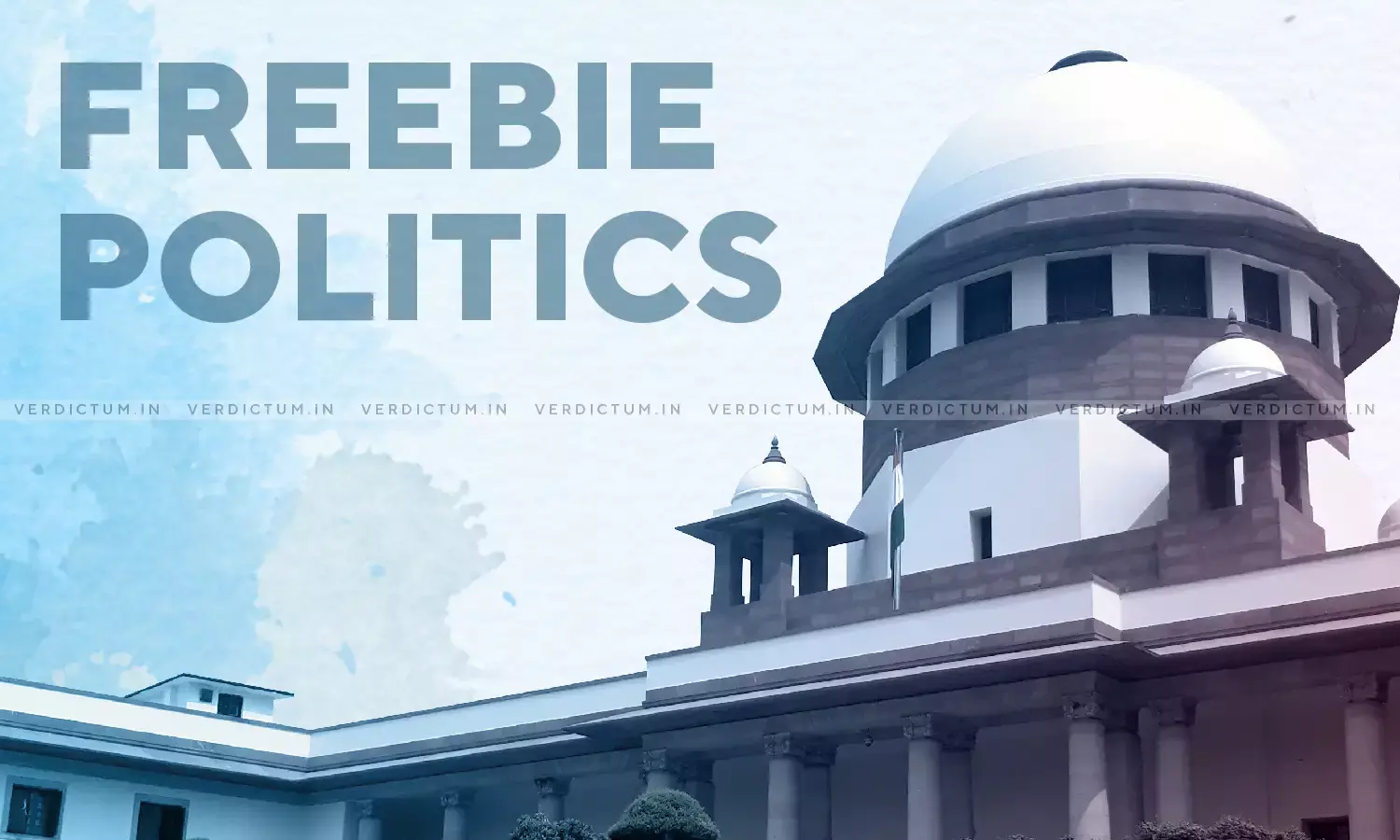Supreme Court Directs Listing Of Pleas Against Poll Freebies Before A Three-Judge Bench

The Supreme Court today directed listing of pleas, which have raised the issue relating to the practice of political parties promising freebies, before a three-judge bench.
A bench headed by Chief Justice N V Ramana said it was argued before it that the 2013 judgement delivered by a two-judge bench of the Apex Court in the matter of S Subramaniam Balaji vs The Government of Tamil Nadu and others required reconsideration.
"Looking into the complexities of the issues involved and the prayer to overrule the judgement rendered by a two-judge bench of this court in Subramaniam Balaji, we direct listing of the set of petitions before a three-judge bench after obtaining the orders from the Chief Justice of India," the Bench said.
"This Court has generally stayed its hand when confronted with issues relating to policy or fiscal matters concerning the State, as the same falls outside the ambit of the Court's jurisdiction," the Bench observed.
Further, the Court also observed, "Ultimately, it appears to us that the issues raised by the parties require an extensive hearing before any concrete orders can be passed. Certain preliminary issues that may need to be deliberated upon and decided in the present set of petitions are as follows: a. What is the scope of judicial intervention with respect to the reliefs sought in the present batch of petitions? b. Whether any enforceable order can be passed by this Court in these petitions? c. Whether the appointment of a Commission/Expert Body by the Court would serve any purpose in this matter? Additonally, what should be the scope, composition, and powers of the said Commission/Expert Body?
The Court placed reliance on S. Subramaniam Balaji v. State of Tamil Nadu, (2013) 9 SCC 659, where the Apex Court had observed that such promises do not fall within the ambit of corrupt practices as specified under Section 123 of the Representation of the People Act, 1951, and issued directions to the Election Commission of India regarding framing of certain guidelines, in the absence of any legislative enactment covering field.
The Apex Court said these pleas would be listed after four weeks.
In the 2013 judgement, the Supreme Court had noted that after examining and considering the parameters laid in section 123 of the Representation of People Act, it arrived at a conclusion that the promises in the election manifesto cannot be read into section 123 for declaring it to be a corrupt practice.
Cause Title - Ashwini Kumar Upadhyay v. Union of India & Anr.
(Story updated after the receipt of the order).
Click here to read/download the Order

